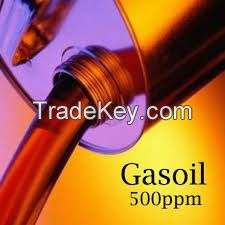Description
~Diesel fuel is liquid fuel used in diesel engines. The most
common is a specific fractional distillate of petroleum fuel oil,
but alternatives that are not derived from petroleum, such as
biodiesel, biomass to liquid (BTL) or gas to liquid (GTL) diesel,
are increasingly being developed and adopted. To distinguish these
types, petroleum-derived diesel is increasingly called
petrodiesel.[1] Ultra-low-sulfur diesel (ULSD) is a standard for
defining diesel fuel with substantially lowered sulfur contents. As
of ***7, almost all diesel fuel available in the Russian
Federation, United States of America, Canada and Europe is the
ULSD type.
In the UK, diesel fuel for on-road use is commonly abbreviated
DERV, standing for Diesel Engined Road Vehicle, which carries a tax
premium over equivalent fuel for non-road use (see Taxation).[2] In
Australia Diesel fuel is often known as \'distillate\' [3]
Some of the important revisions of the EN **0 standard were:
EN **0:***3—The first EU diesel fuel specification. It
established a sulfur limit of 0.2% in onroad and nonroad diesel
fuels.
EN **0:***9—This standard reflected the sulfur (**0 ppm) and cetane
(*1) specifications by Directive *8/*0/EC.
EN **0:***4—Sulfur limits of *0 ppm (so called Euro 4) and *0 ppm
(Euro 5) as regulated by Directive ***3/*7/EC. FAME content of
5%.
EN **0:***9—FAME content of 7% as regulated by Directive
***9/*0/EC. This directive also adopts mandatory biofuel
requirements for refiners and introduces a *0 ppm S limit in
nonroad fuels effective ***1.
Regulatory Terms. In the EU regulatory language, gas oil is the
term used to describe a wide class of fuels, including diesel fuels
for onroad vehicles, fuels for nonroad vehicles, as well as other
distillate fuels. Within the gas oil classification, fuels for on
road vehicles (typically with sulfur content below 0.*5%) are
referred to as diesel fuels, while fuels for nonroad mobile
machinery (typically with sulfur content up to 0.2%) are referred
to as gas oils intended for use by non-road mobile machinery
(including inland waterway vessels), agricultural and forestry
tractors, and recreational craft.
These terms are also linked to the terminology used in the EU
Common Customs Tariff. Different goods are assigned unique CN
(Combined Nomenclature) codes to identify the tariffs that apply.
Diesel fuel for onroad applications has a CN code of ***0 *9 *1.
Gas oils for nonroad mobile machinery can have a CN code of either
***0 *9 *1 or ***0 *9 *5 depending on sulfur level.


